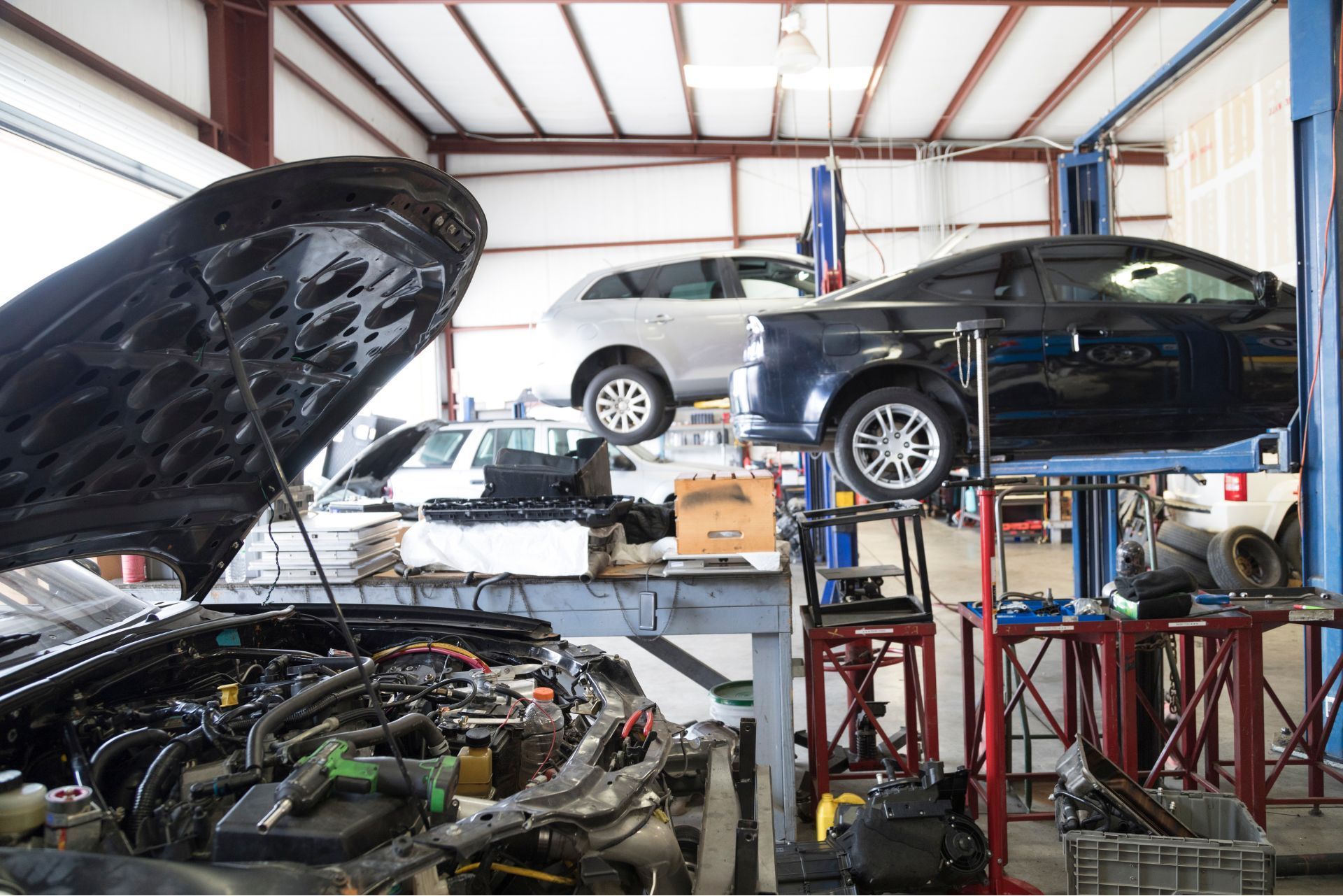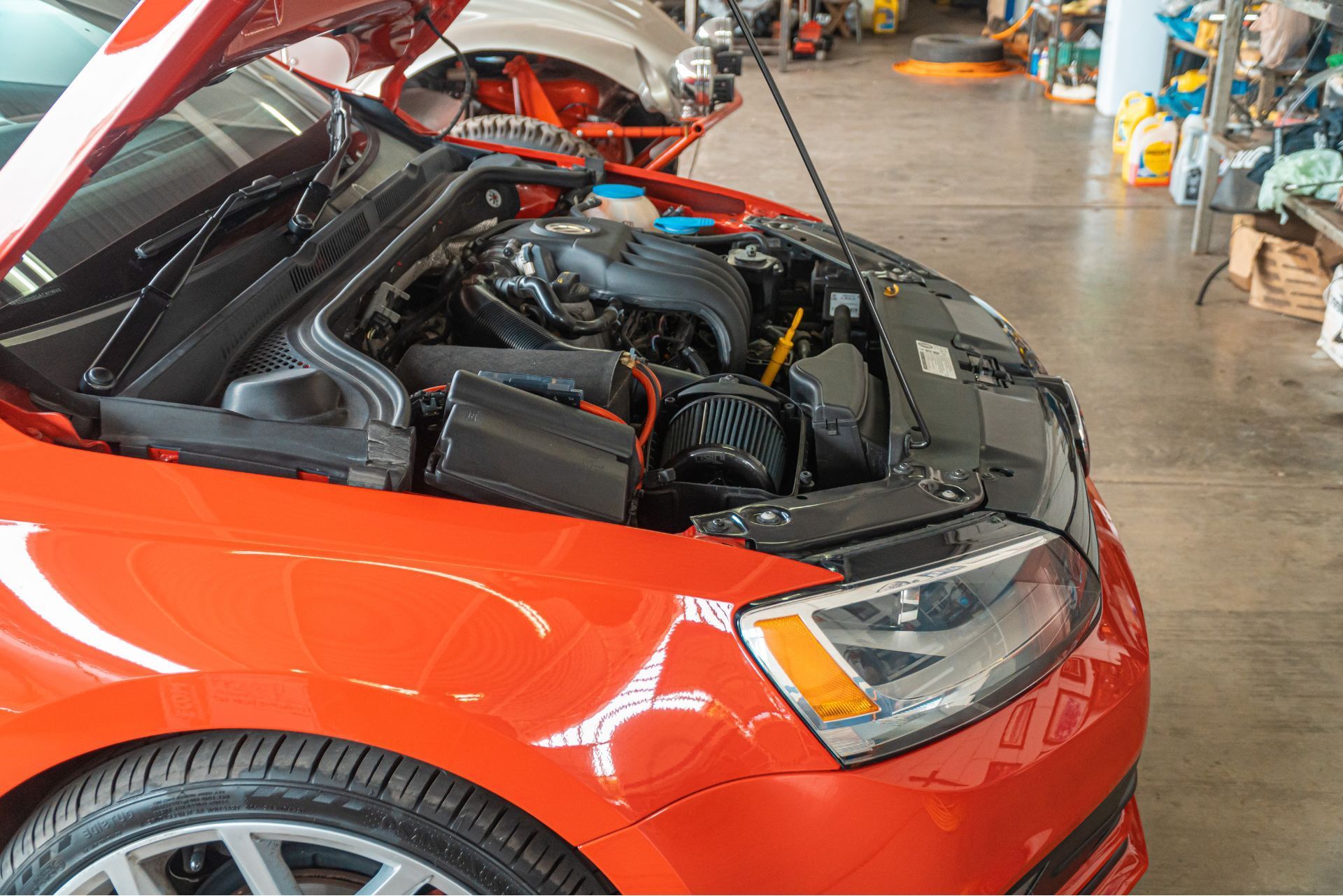Top 3 Recommended Policies
Index
Contact Us
Phone
Location
Auto repair insurance is a crucial consideration for vehicle owners in Oklahoma, providing financial protection against unexpected repair costs. With the right coverage, you can ensure that your vehicle remains in optimal condition without breaking the bank. This guide explores everything you need to know about auto repair insurance in Oklahoma, from understanding the basics to selecting the best policy for your needs.
Understanding Auto Repair Insurance
What is Auto Repair Insurance?
Auto repair insurance, often referred to as mechanical breakdown insurance, is a policy that covers the cost of repairs for your vehicle after the manufacturer's warranty expires. Unlike standard auto insurance, which covers accidents and liability, auto repair insurance focuses on mechanical failures and breakdowns.
This type of insurance is particularly beneficial for owners of older vehicles or those with high mileage, as these cars are more prone to mechanical issues. By investing in auto repair insurance, you can mitigate the financial burden of unexpected repairs, ensuring that your vehicle remains roadworthy.
How Does Auto Repair Insurance Work?
When you purchase auto repair insurance, you pay a monthly or annual premium to the insurance provider. In return, the insurer agrees to cover the cost of specific repairs, as outlined in your policy. It's important to note that most policies come with a deductible, which is the amount you must pay out of pocket before the insurance coverage kicks in.
When your vehicle requires repairs, you typically need to take it to an approved repair shop. The repair shop will diagnose the issue and provide an estimate, which you then submit to your insurance provider. Once approved, the insurer will cover the cost of repairs, minus your deductible.

Types of Coverage Available
Comprehensive Coverage
Comprehensive coverage is the most extensive type of auto repair insurance available. It covers a wide range of mechanical failures, including engine, transmission, and electrical system issues. This type of coverage is ideal for those who want maximum protection for their vehicle.
While comprehensive coverage tends to be more expensive than other options, it offers peace of mind by covering a broad spectrum of potential repairs. It's particularly beneficial for owners of high-end or luxury vehicles, where repair costs can be significantly higher.
Powertrain Coverage
Powertrain coverage is a more affordable option that focuses on the essential components of your vehicle, including the engine, transmission, and drivetrain. This type of coverage is suitable for those who want to protect themselves against major mechanical failures without paying for comprehensive coverage.
While powertrain coverage is less expensive, it's important to understand that it doesn't cover as many components as comprehensive coverage. Vehicle owners should carefully consider their needs and budget when selecting this type of policy.
Specified Component Coverage
Specified component coverage allows you to tailor your policy to cover specific parts of your vehicle. This type of coverage is ideal for those who have identified particular areas of concern in their vehicle and want targeted protection.
For example, if you own a vehicle with a history of electrical issues, you might choose to focus your coverage on the electrical system. This approach can be cost-effective, as it allows you to pay only for the coverage you need.
Factors to Consider When Choosing a Policy
Vehicle Age and Mileage
The age and mileage of your vehicle are critical factors to consider when selecting an auto repair insurance policy. Older vehicles and those with high mileage are more likely to experience mechanical issues, making comprehensive or powertrain coverage a wise investment.
Conversely, if your vehicle is relatively new and has low mileage, you might opt for a more basic policy or even forego auto repair insurance altogether, relying instead on the manufacturer's warranty for coverage.
Cost of Premiums and Deductibles
When evaluating auto repair insurance options, it's essential to consider both the cost of premiums and the deductible. A lower premium might seem attractive, but it could come with a higher deductible, meaning you'll pay more out of pocket when repairs are needed.
It's important to strike a balance between affordable premiums and a manageable deductible, ensuring that your policy provides adequate coverage without straining your budget.
Reputation of the Insurance Provider
The reputation of the insurance provider is another crucial factor to consider. Look for companies with a strong track record of customer satisfaction and prompt claims processing. Reading reviews and seeking recommendations from friends or family can help you identify reliable providers.
A reputable insurer will offer transparent policies, clear communication, and excellent customer service, ensuring that you have a positive experience throughout the life of your policy.
How to File a Claim
Steps to Take When Your Vehicle Needs Repairs
If your vehicle requires repairs, the first step is to contact your insurance provider to verify that the issue is covered under your policy. Your insurer will guide you through the claims process, which typically involves taking your vehicle to an approved repair shop for diagnosis.
Once the repair shop provides an estimate, submit it to your insurance provider for approval. It's important to keep detailed records of all communications and documentation related to the repair, as this can help expedite the claims process.
Working with Approved Repair Shops
Most auto repair insurance policies require you to use approved repair shops for covered repairs. These shops have agreements with the insurer to provide quality service at a reasonable cost. Using an approved shop ensures that your repairs are covered and that you receive the best possible service.
If you're unsure which repair shops are approved, your insurance provider can provide a list of options in your area. It's always a good idea to verify the shop's credentials and reputation before proceeding with repairs.

Benefits of Auto Repair Insurance
Financial Protection
One of the primary benefits of auto repair insurance is financial protection. Unexpected repair costs can be a significant burden, especially for major mechanical failures. With the right insurance policy, you can avoid these unexpected expenses and keep your vehicle in good working order.
This financial security allows you to budget more effectively, knowing that you're protected against costly repairs that could otherwise strain your finances.
Peace of Mind
Auto repair insurance provides peace of mind by ensuring that you're prepared for any mechanical issues that may arise. Knowing that you have coverage in place allows you to drive with confidence, without worrying about the potential cost of repairs.
This peace of mind is particularly valuable for those who rely on their vehicle for daily transportation, as it ensures that you won't be left stranded by an unexpected breakdown.
Increased Vehicle Lifespan
By covering the cost of necessary repairs, auto repair insurance can help extend the lifespan of your vehicle. Regular maintenance and timely repairs are essential for keeping your vehicle in optimal condition, and insurance coverage makes it easier to afford these services.
With a well-maintained vehicle, you can enjoy better performance, improved fuel efficiency, and a longer lifespan, maximizing the value of your investment.
Conclusion
Auto repair insurance is an invaluable resource for vehicle owners in Oklahoma, offering financial protection and peace of mind. By understanding the different types of coverage available and carefully considering your needs, you can select the best policy for your vehicle. Whether you opt for comprehensive, powertrain, or specified component coverage, the right insurance policy can help you navigate the challenges of vehicle ownership with confidence.


